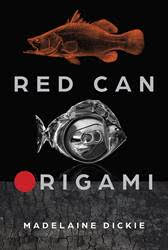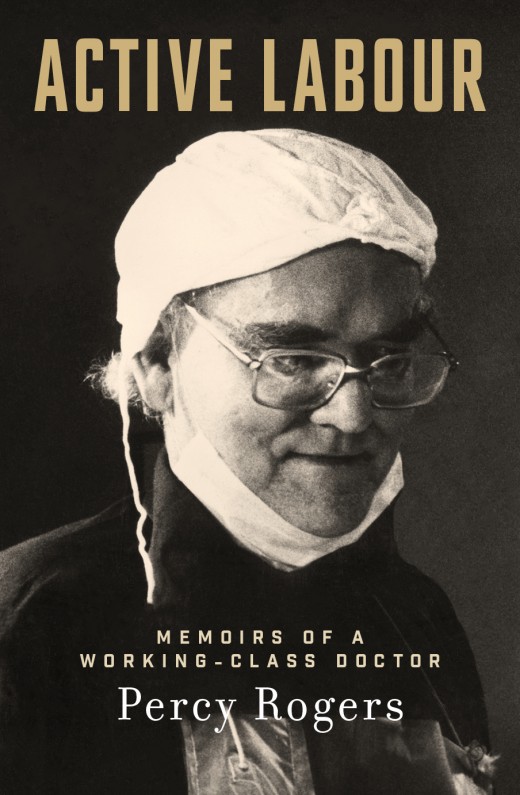Editing and proofreading are two different stages in the revision process of writing. There is often an overlap as both processes require close and careful reading in the search for errors and ways to improve the quality and clarity of the writing.
I am an experienced editor and proofreader of most genres of fiction, including Young Adult, Literary, Contemporary, Mystery, Historical and Crime novels. I have also edited a broad range of non-fiction, including memoirs, biographies and academic books. You won’t find a complex fee schedule for my editing/proofreading service on my website because I consider every brief/project individually when details and requirements are sent via my Contact page or directly via my email: denise@denisemtaylor.com.au
Editing
aims to ensure that the content/narrative flows logically and that the formatting/paragraph structure is coherent. Grammar, spelling and punctuation are checked.
Editing can be ruthless, especially when the editor suggests that the text needs to be rearranged, or that a section is repetitive or verbose, or that a chapter, or section within the chapter, could be rewritten or reduced. However, regardless of the extent of the editing, whether the subject matter is fiction, non-fiction (including academic), the editor must ensure that the writer’s ‘voice’ and style of writing will be maintained.
Traditional avenues for publishing are still alive and well, but the slush pile is always high. Therefore it is imperative that a well-crafted and edited manuscript, cover letter/email pitch, biography and synopsis are submitted. So many writers tend to rush this supplementary submission material. Publishers and agents read the supplementary material first: if it doesn’t engage them immediately, or if they judge the writing to be sub-standard, then they may not read the manuscript!
Here is some feedback from authors whose writing I’ve edited/proofread.
Thank you once again, Denise.
I deeply appreciate your assistance, especially considering the deadlines you had to meet. Your ability to perceive the broader scope and identify potential for further development in my initial draft was invaluable. It allowed me to enrich my story, adding layers of depth and meaning. Your edits in the second draft were seamless, expertly meeting the word count limit without compromising the overall narrative. (Cigdem Serce, October, 2023)
It has been a pleasure working with you on books one and two. I was gratified by your many helpful suggestions, keen eye for detail, responsiveness to queries, and genuine interest in the story’s development. (Brendan Frain, 2022, ‘Monuments of Grass’)
Thank you for all the good work, Denise. I am most grateful for what you have been doing! The comments are wonderful and very useful.(Assoc. Professor David R. Marshall, editor, ‘The Site of Rome: Studies in the Art and Topography of Rome 1400-1750. Melbourne Art Journal 13)
***
You were recommended to me by a friend whose thesis you’d edited and proofread. I’m so glad he did. Thank you so much for bringing to my attention the embarrassing errors I’d made plus helping me to express myself with greater clarity. I am so indebted to you. You were so pleasant and professional – and you delivered on time! I am now proud to submit my thesis.(Kim D.)
***
I make sure that I am clear as to the expectations of the client and whether a copy edit or structural editing is required before I begin editing. If an extensive structural edit is necessary then I will recommend that the document/manuscript is returned to me for copy editing and/or proofreading after any suggested changes have been redrafted by the writer. This final process ensures that any errors in the revision phase are identified.
Proofreading
is the final stage in the editing process.
 When I proofread I make sure that the writing is free from spelling and grammatical errors, inconsistencies and malapropisms (using an incorrect word that sounds the same as or is similar to the appropriate word by mistake. For example, ‘complement’ rather than ‘compliment’) that spell-check will not identify.
When I proofread I make sure that the writing is free from spelling and grammatical errors, inconsistencies and malapropisms (using an incorrect word that sounds the same as or is similar to the appropriate word by mistake. For example, ‘complement’ rather than ‘compliment’) that spell-check will not identify.
The formatting is also checked for consistency. I even check ‘facts’ and cross-references for accuracy. Sometimes proofreading involves minor editing such as suggestions for improvement of sentence and paragraph construction.
I usually proofread (or copyedit) on screen using Microsoft Word’s Track Changes facility. I will return your manuscript showing all of the suggested changes and my comments and queries. This gives you complete control over the final version of your document. As you read the tracked-changes version, accept or reject each suggested change. For a little extra charge, I will also send back a ‘clean copy’ of the changes I’ve made because track changes look so messy! If you prefer, you can send me a hard copy with return postage.
Thank you so much for all that hard work, Denise. What hubris on my part to have thought that there would not have been that many errors! (Patricia O.)
I was delighted with your final proofing on my last draft. So good to get some clarity on the colon issue and the capitalisation. I knew there were still some problems but it was really doing my head in nailing what was the basic principle–with your extra input I finally got it! (Ivan M.)
Sometimes you just don’t see the small errors because you have either read your writing too many times or you are more interested in the content and layout. My editing and proofreading service will provide that essential objective ‘eye’.
If your first language is not English then I’ll help you re-write your text in fluent English.
Academic Editing & Proofreading Service
 My editing/proofreading service for university academics, researchers, under- and post-graduates covers all types of academic writing including theses, journal articles, scholarly books, research and symposium papers, and the all-important book proposal.
My editing/proofreading service for university academics, researchers, under- and post-graduates covers all types of academic writing including theses, journal articles, scholarly books, research and symposium papers, and the all-important book proposal.
Whatever the academic project, there comes a time—a moment—when the writer takes a deep breath and concludes that the work is the best it can be. However, it is common knowledge that when writers read their own work (over and over) they often become ‘blind’ to grammatical and spelling errors. Handing your work to an editor who has never read it will provide ‘fresh eyes’ to pick up any mistakes, ambiguities or repetitions that may have been missed. Sometimes I point out that the tone/voice is not quite right for the audience it is addressing, or if a citation may have been missed for an unsubstantiated contention. If required I will make sure that citations, footnotes and references adhere to the required style guide.
Following the editing process, the writer-review process often results in new material being written and more unintended errors. It is often a good idea to return the final draft for a proofread.
Passing your ‘labour of love’ to an editor can be daunting. If you are writing a book commissioned by a scholarly publisher don’t rely on the publisher’s ‘stretched’ editors or proofreaders to do a perfect job for you. I have often felt sorry for an author when I find consistent errors in the published book that have not been picked up in the final edit/proofread.
If you have written a thesis then you don’t want examiners finding grammatical errors, lack of clarity in sentence construction, or inconsistencies throughout your thesis; this sends a message that insufficient care was taken in the final stages of the writing.
Sometimes PhD candidates send me a few chapters at a time to provide a light edit in accordance with the guidelines for copy-editing theses so they can review and return the thesis for a final proofread.
I have worked through most of the first six chapters and am so appreciative of the editing. The feedback is invaluable. This has helped to move forward. PhD thesis, Karen Felstead, Lecturer in Literacy, School of Education, Federation University.
Editing & Proofreading Fees
I consider every writing project individually before I provide a quotation of my fee. So I look forward to receiving details and requirements via my Contact page or directly via my email: denise@denisemtaylor.com.au
Please include in your message/email:
- A brief explanation of the level/type of editing/proofreading required
- The word count of your document/manuscript
- If fiction, which genre? If non-fiction/academic writing, what subject matter/field of research?
- Deadline for completion
 You will receive a reply from me that may ask for further information, including a sample of your writing, or if straightforward, I will provide a quotation/estimated fee for the completion of the service (an estimate is a general guess at the final cost, which may end up being higher or lower). Conditions apply and privacy/confidentiality is guaranteed (refer to Terms & Conditions below).
You will receive a reply from me that may ask for further information, including a sample of your writing, or if straightforward, I will provide a quotation/estimated fee for the completion of the service (an estimate is a general guess at the final cost, which may end up being higher or lower). Conditions apply and privacy/confidentiality is guaranteed (refer to Terms & Conditions below).
If you agree with the quote/estimate (and Terms & Conditions) and wish to place an order, I will ask you to pay the deposit/full fee using the payment method (electronic bank transfer) set out in the invoice. When the fee/deposit is received a receipt will be emailed to you and the service will commence (upload your Word document or post a hard copy).
Terms and Conditions
Denise M Taylor respects and protects her clients’ privacy. Denise collects personal information via her website, telephone calls, and written communications. Some of the information that is requested is essential for Denise to be able to provide her editing/consulting service, and some is additional information that the client chooses to provide. Denise will treat personal information with no less protection than that provided for by the National Privacy Principles and the privacy laws that are in force in Australia.
The client must provide full and accurate information prior to a quote/estimate being issued. The client assumes all responsibility for any problems or errors, as well as legal liability resulting from an incorrect statement of work. Denise reserves the right to deny or refuse service for any reason and without explanation. For example, material submitted that advocates violence, hatred or discrimination in contravention of national and international laws. Transmission of material which is virus infected, defamatory, obscene or pornographic is strictly prohibited.
The client does have the option to renegotiate the initial quote to allow for work of greater scope or duration should the requirement change mid-project.
The client entering into a contract for the service will retain the sole copyright, ownership and control over all materials submitted. It is the client’s responsibility to keep a copy of the work sent for editing or proofreading. In the case of Denise being unable to complete the project, all advance fees that have been paid by the client up until the point of termination will be refunded.




